Posted on 1/26/2018
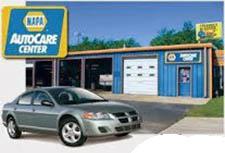
All vehicles utilize numerous different fluids in order to operate the various system onboard. It may be difficult to understand how a liquid can help you steer your car or even bring it to a stop, but it does! As part of your routine auto maintenance it is necessary to drain and refill this liquids to ensure they are not contaminated with any pollutants that could cause the systems to fail. Be sure to check your owner's manual to find out when your car is due for these very vital fluid services. Brake Fluid Flush One of the most important fluids in your car is brake fluid. Your brakes are hydraulically assisted, meaning the system relies on this liquid to generate the force necessary to bring your car to a stop. In most vehicles a brake fluid flush is necessary when brake pads are replaced, which is often around the 30,000 mile mark for regular drivers. Power Steering Fluid Flush Vehicles with hydraulic power steering will need to have the power steering fluid flushed as well. If a v ... read more
Posted on 1/3/2018
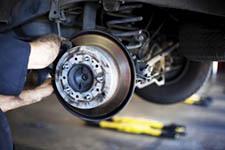
Today's cars are full of amazing safety features such as airbags that can deploy from every which way, seat belts that hold us in place and shatter proof windows prevent glass shards from flying around during an accident. But each of these things have something in common, they are all safety features that are necessary in the event of a wreck, they don't help prevent an accident. The brakes on the other hand are the number one safety feature of your vehicle that can actually help prevent a car wreck, as long as they are in good working order. If you experience any of these signs of brake trouble be sure to head to the auto repair shop right away to have the problem resolved. Grinding or Squealing Noises Likely one of the first signs of trouble you may experience if your brake pads are low is a grinding noise. This happens because modern brake pads are designed with a mechanism that creates the noise as the pads get close to the end of their usable life. However it can also occur if th ... read more
Posted on 12/18/2017
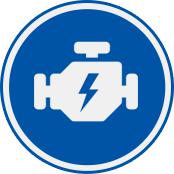
It takes oxygen and gasoline ignited by a spark to make your internal combustion vehicle's engine run properly. If you turn the key in the ignition (or push the ignition button on some newer vehicles) your car should start up quickly and be ready to go. If instead the engine turns over and over without starting, or if nothing happens at all, it is likely your vehicle is suffering from one of the following issues. Be sure to get to an auto repair shop for proper diagnostics and repair. Dead Battery The most common reason a car won't start is because the battery is dead. The battery may die due to age, but if it gave you no signs of trouble and then suddenly was dead it may be due to leaving a door ajar or the lights on. Either way, you should be able to jump the vehicle to get it going. Fuel System Problem If gas can't get to the combustion chamber then you won't be able to get the car started. The most common fuel system problems are a clogged fuel filter, a malfunctioning fuel pump ... read more
Posted on 12/11/2017
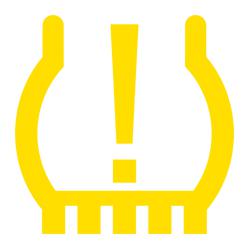
Your car or truck has many ways of communicating issues that it is experiencing to you. It is common to experience strange noises, catch a whiff of something odd, notice a drip or even feel a strange vibration coming from somewhere. However, your car has a very smart computer system that can detect many issues as well. If a sensor in your car notices a problem it will illuminate a dashboard indicator light. The following are some of the most common lights. Check Engine Light The check engine light, which looks like an engine, can represent hundreds of different problems with your vehicle's motor and the way that it is running. Common issues include malfunctioning oxygen or mass air flow sensors, misfiring or a faulty catalytic converter. TPMS Light The tire pressure monitoring system keeps a lookout on your tires to ensure they are properly inflated. If this light, which looks like a deflated tire with an exclamation point in it, comes on, pull into a service station to check your tir ... read more
Posted on 11/25/2017
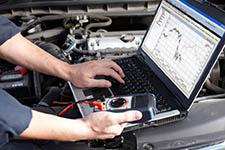
It is important to remember that your vehicle does not just run on gasoline. Many of its accessories and systems utilize electricity in order to operate. That electricity is generated by the alternator, which is connected to a belt that is spun by the motion of the engine, which in turn creates electrical power that is stored in the battery. If the alternator fails it was result in a vehicle that will not be able to start. However, you may run into several issues prior to it getting to that point. These are for common signs of impending alternator failure. General Electrical Failures The alternator is responsible for powering many different systems while the vehicle's engine is running. This includes the air-conditioning, power windows, power seats, and the radio. If any of these systems, or all of them at once, seem to be having difficulty operating or will not operate at all there's a good chance that the alternator is not able to produce enough power. Anytime you have e ... read more
Posted on 11/20/2017
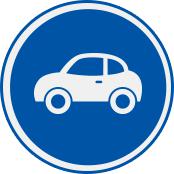
Your vehicle's transmission is the system in your car that is more or less responsible for transferring the power created by the engine to the wheels. It is essentially a machine within a machine. Automatic, manual and semi-automatic transmissions in all makes and models require routine maintenance, as without it, or simply due to high mileage wear and tear, they can begin to experience some serious trouble. If you notice any of the following signs of transmission trouble be sure to visit a reputable auto shop for professional diagnostics and repair before you're unable to shift through the gears. Metal grinding noises A transmission that is having trouble shifting may create grinding noises as it attempts to move between gears. These sounds are usually characteristic of metal grinding on metal. Often times this is caused by a lack of transmission fluid, which is necessary to ensure a properly lubricated and well operating tranny. If you notice any grinding sounds be sure to get in to ... read more
Posted on 10/2/2017

When you turn the key in the ignition of your car or truck your vehicle should instantly roar to life. The starting system should fire up the engine in just a few cranks in a healthy vehicle. However, if your engine is struggling to operate it may crank over and over before starting. That's not the only sign of trouble though. If you run into any of the following issues be sure to contact your local auto repair shop so that proper diagnostics and repairs can be completed to ensure your car is safe and reliable. Knocking Noise If you can hear a knocking noise coming from the front of your vehicle while driving your vehicle may be suffering from worn engine bearings. This noise will rise and fall with engine RPMs. The engine bearings are what the moving parts of the engine rest on and they will wear out after many, many miles of use. If this problem goes unchecked it could lead to a seized engine, which would likely require an engine replacement. Increased Exhaust Smoke Have you noticed ... read more
Posted on 9/22/2017

Engines come in many sizes and each independent one can create a vastly different amount of power from another. But all internal combustion engines, like the one in your car operate in practically the same manner. This means the symptoms of trouble that they display will be similar from one vehicle to the next. It is important that you head to an auto shop at the first sign of problems so that the issue does not get worse. If diagnosed soon enough engine trouble can be a relatively quick, inexpensive fix, but if the signs are ignored it can result in a lengthy repair process. If you experience any of these signs of engine trouble don't delay having the problem properly diagnosed! Loud Knocking Noise There is a good chance that one of the first signs of engine trouble you will experience will be a loud, repetitive knocking noise coming from under the hood. This noise occurs when the vehicle's engine bearings begin to wear out. This can happen due to improper lubrication or general wear ... read more
Posted on 9/2/2017

Your car's engine operates at very high temperature, but the radiator helps keep it cool with the use of cold air and by circulating coolant fluid through the engine. If your car springs a radiator leak or a coolant leak elsewhere in the system your vehicle is at risk of overheating, which can cause major engine damage. The most common sign of a coolant leak is the engine temperature gauge rising to the hot side prior to your engine spewing steam. Before your engine overheats you can perform these checks to look for a radiator leak. If you find one you will want to bring your car to a professional mechanic to have the issue repaired to prevent major problems. Puddle of Coolant Fluid This goes without saying but the most obvious sign of radiator trouble is a visible coolant leak. Coolant is generally a bright green color, but can also be pink or yellow, and it will be slimy to the touch. Radiator fluid is very attractive to animals but is very hazardous if ingested so it is important to ... read more
Posted on 8/22/2017

Modern cars and trucks are full of sensors and other devices that are designed to help inform drivers about potential problems with their vehicle. However, even the most technologically advanced automobiles can't detect every single issue. Sometimes, all you need is a pair of ears to determine that something isn't quite right. If you ever hear strange noises coming from your car it's a smart idea to visit the auto repair shop for diagnostics and service. The following are a few of the most common noises you may encounter if your car is having trouble operating. Grinding Noises Grinding noises are a fairly common sign of trouble, but it is important to pay attention to what you're doing when the noise occurs. Brakes - If you encounter a grinding noise when you apply the brakes then it is safe to assume that the brake pads are low and in need of replacing. Transmission - Grinding noises that can be heard as the transmission shifts often indicates that ... read more